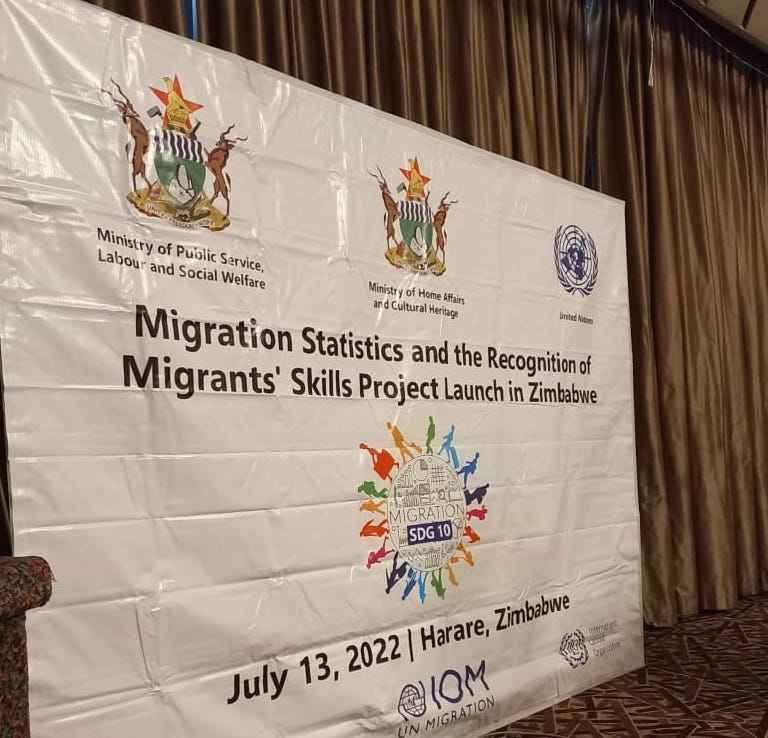|
Getting your Trinity Audio player ready...
|
Zimbabwe has launched the project on migration statistics and recognition of migrants’ skills, a programme being funded by the United Nations under the Economic Commission for Africa (ECA) initiative.
In his remarks, Hon Kazembe Kazembe, the Minister of Home Affairs and Cultural Heritage, who was represented by his Deputy in the same ministry, Hon Ruth Mavhungu Maboyi, said there is general consensus that migration has become not only global but a very topical phenomenon.
In this regard, he said it is a must for players and actors in migration governance, both in the public and civic sectors, to strive to understand this phenomenon holistically in order to respond appropriately through evidence-based policies.
“One area that has unfortunately remained a grey area in migration governance is the area of statistics related to migration. It is not that migration is incapable of generating statistical data but rather it is the collection, interpretation; sharing, and eventual utilization of migration data that has had considerable challenges. This is basically because systems that are in place to harness migration data might either be incapacitated in terms of infrastructure, handicapped technically, or falling short in terms of training of practitioners,” he said.
The minister said the coming on board of development partners like the Economic Commission for Africa, the International Labour Organization (ILO), and the International Organization for Migration (IOM) has come at the very opportune time when the Government of Zimbabwe is almost wrapping up its process of crafting the Zimbabwe Migration policy.
He added that the Government of Zimbabwe is fully committed to supporting the Global Compact initiatives on migration, with particular emphasis on the creation of safe and orderly migration through the crafting and utilization of a migration policy that is both regionally and continentally compliant and consistent with the relevant Sustainable Development Goals.
To that end, he said migration governance programs should be managed and articulated well. Stakeholders were urged to take stock of their current data collection systems, identify their strengths and possible weaknesses and see how best projects like the one launched today could be utilized to enhance migration data collection and utilization.






